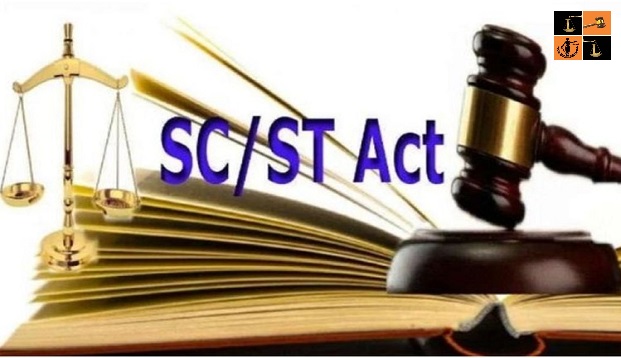
The Supreme Court has ruled that a Court can exercise its power to quash proceedings where it appears that the alleged offence although covered under the SC/ST Act, is primarily private or civil or where it has not been committed on account of the caste of the victim.
The observation came while quashing criminal proceedings against a man convicted under the Scheduled Castes and the Scheduled Tribes (Prevention of Atrocities) Act.
Brief Facts of Case
The present appeal was filed by a man challenging an order of the Madhya Pradesh high court which had upheld his conviction under the SC/ST Act.
A civil dispute over the ownership and possessory rights of a piece of land between the man and his neighbour took an ugly turn when he allegedly not only threw a brick on the woman but also made filthy and slur remarks on her caste, which prompted her to lodge an FIR.
The man and the other co-accused were subsequently tried, which led to his conviction under the SC/ST Act and consequential sentence of six months rigorous imprisonment along with a fine of ₹1000. The man challenged his conviction and sentence before the High Court but his appeal was dismissed.
Supreme Court's Observation
The three-judge bench of CJI NV Ramana, Justice Surya Kant and Justice Hima Kohli noted:
The Bench further noted that the SC/ST Act has been specifically enacted to deter acts of indignity, humiliation, and harassment against members of Scheduled Castes and Scheduled Tribes, however, it will be extremely circumspect in its approach when dealing with offences arising out of special statutes.
The Top Court mentioned that the Act is a recognition of the depressing reality that despite undertaking several measures, the Scheduled Castes/Scheduled Tribes continue to be subjected to various atrocities at the hands of upper castes.
It added:
In view of the above, the Court observed that in the case in hand the matter had been settled between the parties, and the complainant had filed an application for compromise.
Reiterating the same plea, counsel for the accused canvassed that the parties are residents of the same village and there is no existing enmity between them.
Noting this, the Bench said, if the court is satisfied that the objective of the Act would not be contravened or diminished even if the felony in question goes unpunished, the mere fact that the offence is covered under a ‘special statute' would not refrain it or the High Court, from exercising their respective powers under Article 142 of the Constitution. It thus observed:
It furher remarked that the very purpose behind Section 3(1)(x) of the SC/ST Act is to deter caste-based insults and intimidations when they are used to demean a victim on account of he/she belonging to the SC/ST community and it aims to protect members of the downtrodden classes from atrocious acts of the upper strata of society.
Read Judgement Here:
SOURCE ; /www.latestlaws.com/
Social media is bold.
Social media is young.
Social media raises questions.
Social media is not satisfied with an answer.
Social media looks at the big picture.
Social media is interested in every detail.
social media is curious.
Social media is free.
Social media is irreplaceable.
But never irrelevant.
Social media is you.
(With input from news agency language)
If you like this story, share it with a friend!
We are a non-profit organization. Help us financially to keep our journalism free from government and corporate pressure














0 Comments